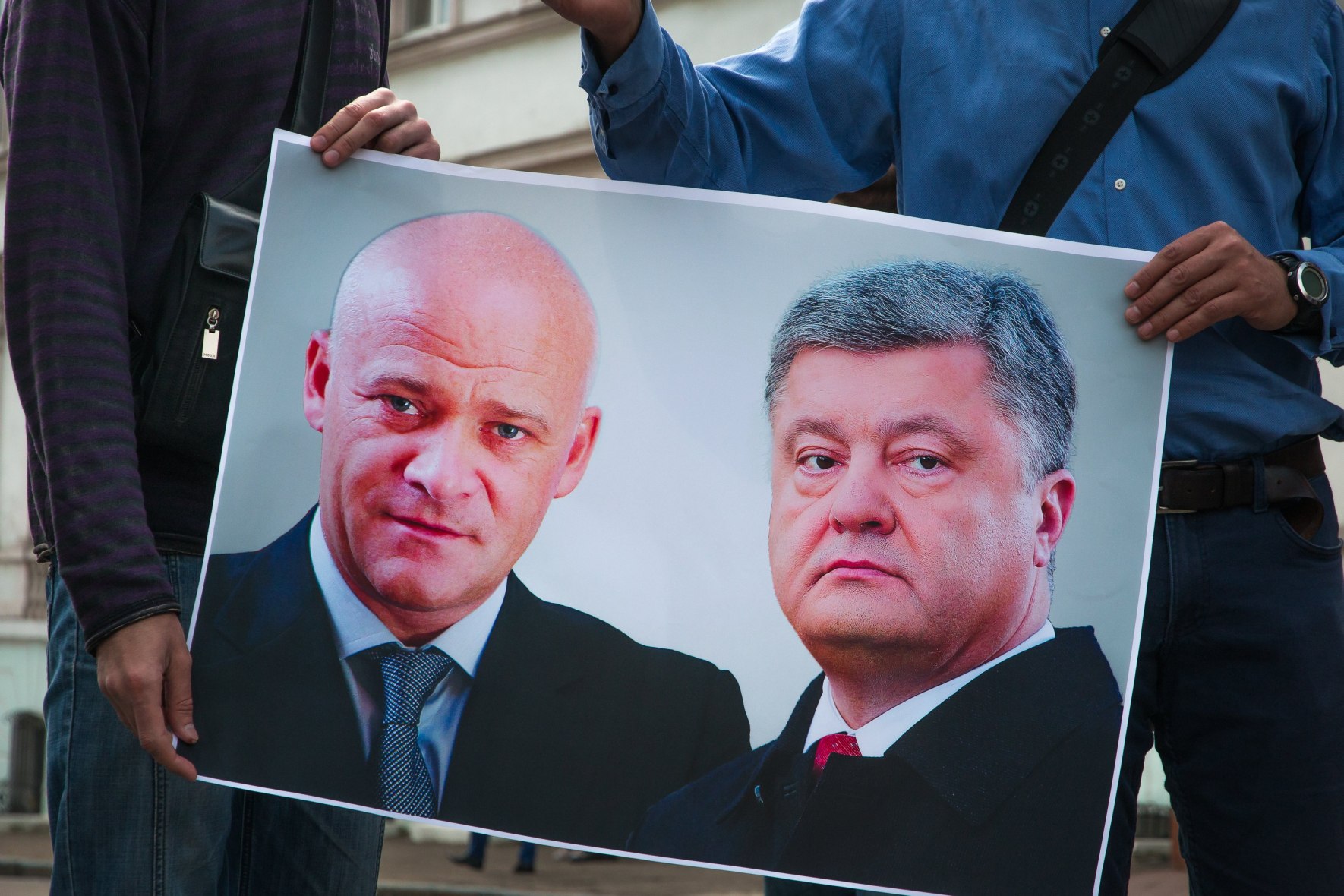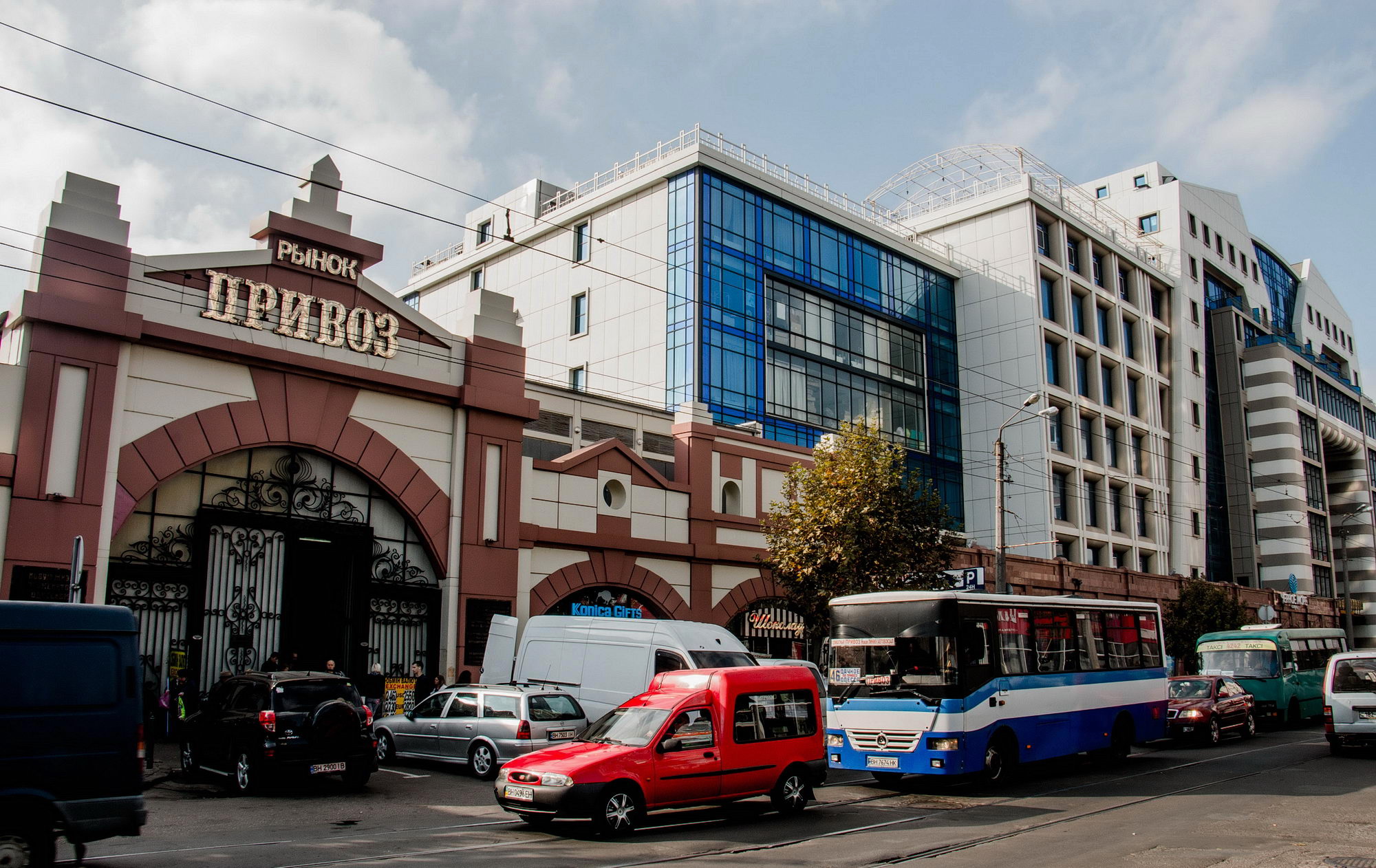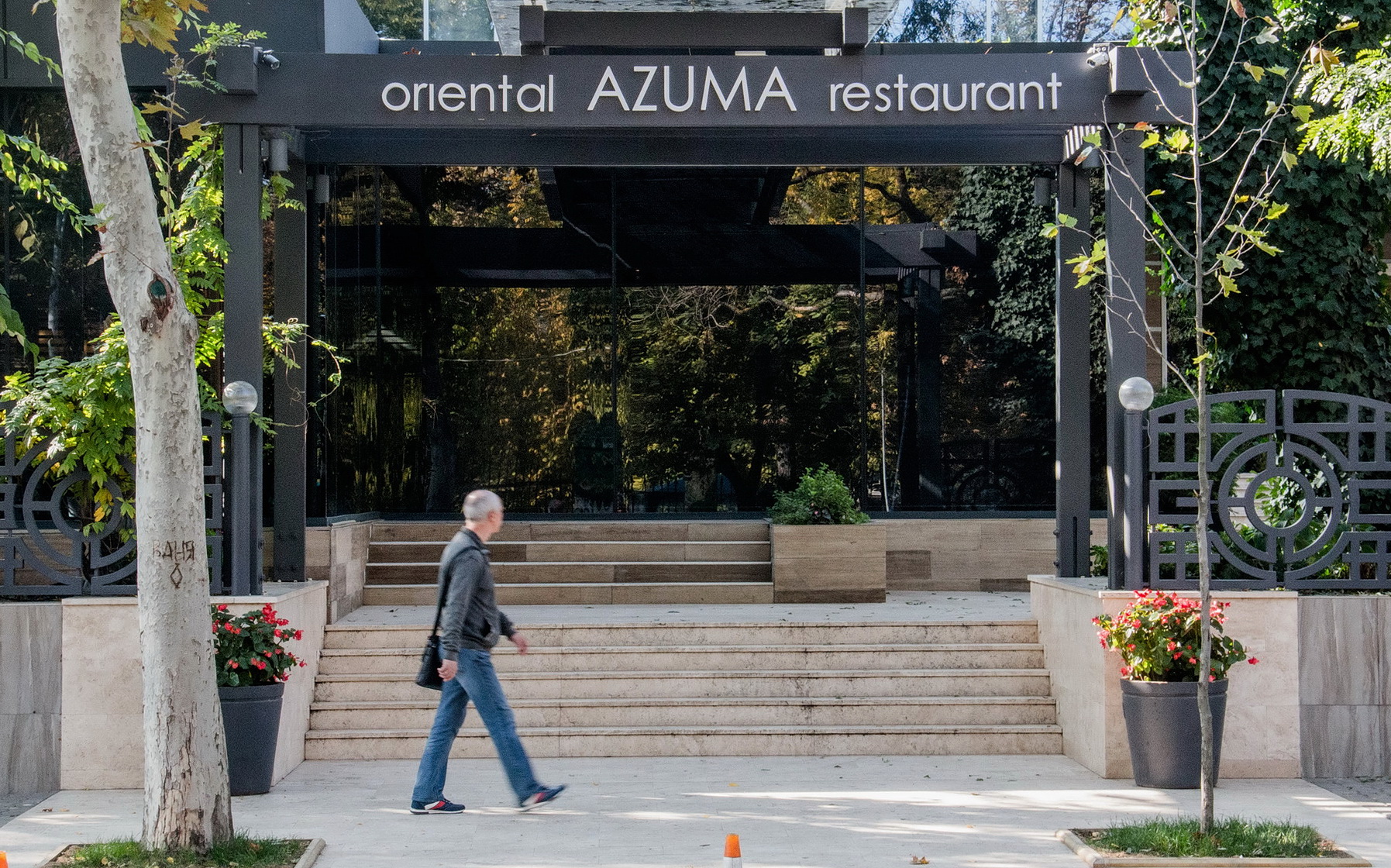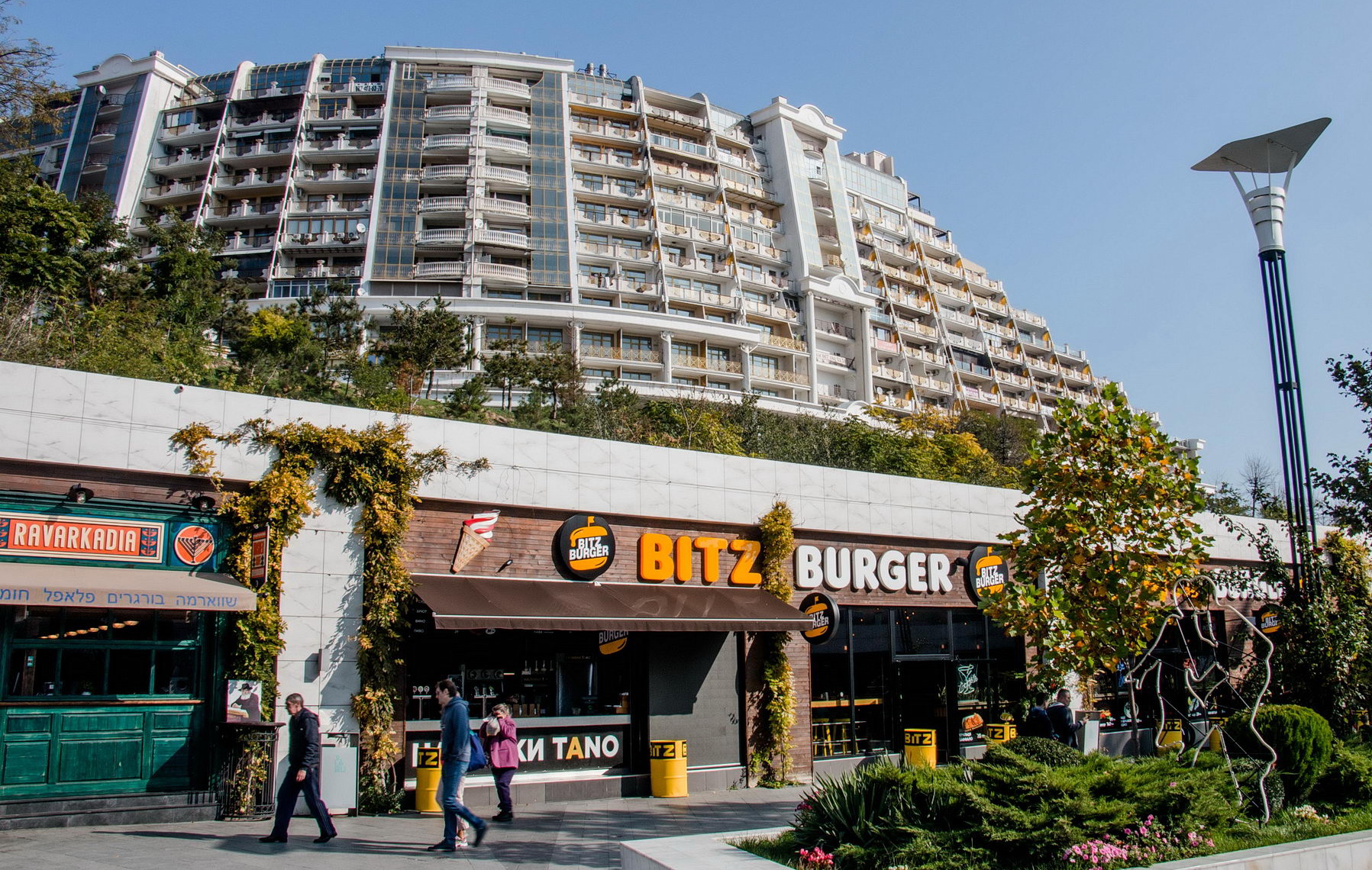Odesa Mayor Gennady Trukhanov’s days in office may soon be coming to an end.
Mired in numerous corruption scandals, Trukhanov has become so toxic that President Volodymyr Zelensky has had to distance himself from the mayor.
Trukhanov and his allies have tried to curry favor with Zelensky and have the backing of billionaire oligarch Ihor Kolomoisky, who supported Zelensky’s presidential campaign.
However, anti-corruption activists in Odesa hope that Zelensky will give voters a chance soon to replace Trukhanov with a better and more honest mayor.
Regular mayoral elections are scheduled for fall 2020, but there is still a chance that early elections will be held before then.
Trukhanov’s prospects also depend on whether law enforcement will be able to prosecute and try him in numerous ongoing criminal cases under Zelensky. Several law enforcement agencies stepped up a crackdown on alleged criminal schemes in Odesa in November, and two graft cases against Trukhanov have also been submitted to the High Anti-Corruption Court recently.
Local anti-corruption activists accuse Trukhanov and his alleged business partners, Alexander Angert and Vladimir Galanternik, of having turned Odesa into their private fiefdom, awarding the most lucrative land and municipal contracts to their own companies.
An Italian police dossier from 1998 identifies Trukhanov and Angert as members of a mafia gang. It was published by the Organized Crime and Corruption Reporting Project, a Kyiv Post partner, in 2016.
Trukhanov’s press office did not respond to a request for comment, while previously the mayor has denied the accusations of wrongdoing. Galanternik and Angert could not be reached for comment. Both stay out of the public eye, and have never commented on their dealings in Odesa, the Black Sea port city of 1 million people located 475 kilometers south of Kyiv.
Deal with Trukhanov?
One of the crucial questions is whether Zelensky will strike a deal with Trukhanov or attempt to replace him with one of his own supporters.
Zelensky’s predecessor, ex-President Petro Poroshenko, was accused of using criminal cases to keep Trukhanov on a leash. The two allegedly reached a deal to make Trukhanov support the former president’s re-election bid. Poroshenko’s press service did not respond to a request for comment.
Trukhanov is a member of the pro-Russian Doveryai Delam (Trust in Deeds) party, which has expressed support for Zelensky.
Zelensky has rarely commented on Trukhanov’s activities. He expressed reserved criticism of the mayor only when asked about him.
At the same time, unlike Poroshenko, Zelensky has abstained from explicitly backing Trukhanov, Odesa-based anti-corruption activists Mykhailo Kuzakon and Oleg Mykhailyk said.
Specifically, Zelensky did not invite Trukhanov to several official events that he held in Odesa. During the president’s visit to Odesa in October, Trukhanov suddenly went on vacation.

Activists who protest against the alleged alliance of ex-President Petro Poroshenko and Odesa Mayor Hennady Trukhanov hold a poster with their pictures on May 26, 2017 in Odesa. Poroshenko was accused of concluding a shady deal with Trukhanov for re-election support in exchange for his immunity from criminal prosecution. (UNIAN)
That month, Zelensky denied having any allegiance to Trukhanov, answering a Kyiv Post question at a press conference.
“We’re not friends and we don’t celebrate anything together,” Zelensky said. “I don’t have any relations with him.”
He also said that he would like Trukhanov “to change his approach to Odesa” and “get rid of crime.”
Odesa-based journalist and anti-corruption activist Kateryna Madens said that lawmakers from Zelensky’s party elected in Odesa don’t favor Trukhanov so far.
“I like the fact that they don’t want to support him and don’t reach bargains with him,” she said.
Early elections?
Although local elections are scheduled for fall 2020, Zelensky and his party have been considering holding early elections in Ukraine’s major cities to complete a “re-boot” of the government.
“Everything depends on local elections for which we must start preparing,” Zelensky said in October. “If Odesa’s residents want change and want to elect another mayor, then they’ve got to choose one.”
However, Zelensky also said that early local elections cannot be held “currently.”
Madens, Mykhailyk and Kuzakon argue that early mayoral elections are likely to be held in Odesa in spring.
The Zelensky administration may use the completion of decentralization as a formal reason for early mayoral elections, Mykhailyk added. But even if early elections are held, scheduled elections will still have to be held in the autumn of 2020 under current legislation.
The authorities will have to change the law if they want to hold early elections, Mykhailyk argued.
Even if Trukhanov is removed, the influence of his more powerful allies Angert and Galanternik is likely to remain, and they will try to get another puppet elected as mayor, civic activists say.
“(Galanternik’s) people will still remain, and they will keep power,” Madens said. “They will keep doing what Trukhanov was doing but will use another person to sign documents.”
Another major question is whether Zelensky’s administration will try to reach a deal with Galanternik regardless of Trukhanov’s removal, said Mykhailyk and Olga Kvasnitska, an Odesa city council member from the Samopomich party. They said that some lawmakers from Zelensky’s party elected in Odesa are suspected of having ties to Galanternik.
A candidate backed by Zelensky will have a serious chance of winning the mayoral election, local activists say.
Former Odesa Oblast Governor and Georgian President Mikheil Saakashvili and Mykhailyk have been considering running in the election, but much depends upon whether any of them gets the “Ze franchise.”
So far, neither Zelensky nor Galanternik has decided whom to back in the next election, according to Mykhailyk.

Odesa’s main street market, Privoz, is allegedly affiliated with businessman Vladimir Galanternik, according to local anti-corruption activists and experts. They say that he controls numerous assets in Odesa through shady intermediaries, although officially he does not own anything. (Taisiia Kutuzova)
Attacks on activists
There have been assaults and murder attempts on at least 14 activists in Odesa over the past two years. Some of the activists directly blame Trukhanov and Galanternik for the attacks — a charge that they deny.
Vitaly Palyutin, the suspected organizer of the attack on activist Alina Radchenko, has been photographed embracing Trukhanov.
Assaulted activists have different opinions on whether there has been progress in the investigations into the attacks since Zelensky took over as president.
Kuzakon, one of those attacked, is optimistic and said that, currently, several assault cases are being merged and sped up. He said that it is not a coincidence that the last major attacks on activists happened before the presidential election.
Another activist who was assaulted, Mykhailyk, disagrees.
He argues that there is no progress in the investigations into the assaults. While the suspected perpetrators have been found in many assault cases, the organizers have not been identified in most of them.

Odesa’s posh Azuma restaurant is allegedly affiliated with Odesa Mayor Hennady Trukhanov and businessmen Alexander Angert and Vladimir Galanternik, according to local anti-corruption activists and experts. They say that the trio control numerous assets in Odesa through shady intermediaries, although officially they do not own anything. (Taisiia Kutuzova)
Krayan case
Trukhanov’s future under Zelensky also depends on how successfully criminal cases against the mayor are investigated.
On July 9, Odesa’s Malinovsky District Court acquitted Trukhanov in an Hr 185-million embezzlement case. Trukhanov is accused of organizing a city council vote to buy the old Krayan factory administrative building for Hr 185 million ($7.04 million) in September 2016, when it had been purchased at the beginning of the year by another firm for only Hr 4 million ($152,000), suggesting the deal was a scheme to embezzle money from the city.
“Initially there were big hopes that Trukhanov would go to jail,” Madens said. “When the case was transferred to the Odesa court, there was a disappointment. We understood that, here in Odesa, not a single official or judge would go against the mayor.”
Kvasnitska also believes that “we don’t have a fair justice system in Odesa, and many judges are dependent on the city government.”
Kuzakon and Mykhailyk argue that the Odesa court was extremely biased in favor of Trukhanov. The court refused to consider much of prosecutors’ evidence and to question some of their witnesses.
The court also refused to consider Trukhanov’s so-called black ledger — a secret accounting book with alleged corrupt payments involving city officials.
Moreover, the court was in a hurry to bring the trial to a conclusion and appointed five hearings a week, which is a highly unusual speed for Ukrainian courts.
The court denied the accusations that the verdict was unlawful, saying that only higher courts can recognize it as such.
Other investigations
In March, the National Anti-Corruption Bureau of Ukraine, or NABU, also charged Trukhanov with failing to declare assets worth Hr 51 million ($2.1 million) owned by his common-law wife Tetiana Koltunova.
In October, the Krayan case was transferred to the High Anti-Corruption Court during the appeal stage. The asset declaration case was also sent to the anti-corruption court in the same month.
Local activists say that there are better chances that Trukhanov will be convicted by the High Anti-Corruption Court than by Odesa courts, which they say are controlled by City Hall.
Trukhanov and other city officials are also under investigation over the allegedly illegal allocation of land plots for construction projects free of charge without tenders, including one at Odesa’s Shkilny military airfield.
Meanwhile, Kuzakon said he had initiated a case into Trukhanov’s Russian citizenship. The mayor denies its existence. Trukhanov is under investigation for allegedly submitting false information on his citizenship and over illegal access to state secrets.
The site of Russia’s Federal Tax Service shows that Trukhanov used to be a Russian citizen. In 2017, Russia’s Sergiyev Posad Court annulled his citizenship due to alleged procedural violations he made while obtaining it.
Crackdown on crime?
This month, law enforcers appear to have intensified their efforts to fight crime in Odesa, which may indicate a bleak future for Trukhanov.
On Nov. 28, Vadym Alperin, a businessman suspected of running large-scale smuggling schemes in Odesa, was arrested by the NABU. He is accused of causing damage to the state worth Hr 77.7 million ($3.2 million) through smuggling.
NABU also searched the State Architectural and Construction Inspection Service on Nov. 14 in connection with an investigation into Odesa’s Greenwood residential construction project, which is linked by numerous activists and experts to Galanternik. City officials are suspected of violating the law by allocating the land to Greenwood.
Moreover, on Nov. 22, the Prosecutor General’s Office and the Security Service of Ukraine (SBU) searched Odesa City Hall. City officials are being investigated for allegedly embezzling Hr 100 million ($4 million) by inflating the debt of Odesa’s utility services.
On the same day, the SBU searched the state-owned Odesa Seaport, where officials are suspected of stealing Hr 55 million ($2.2 million). Another search was related to a prosecutor’s alleged extortion of a bribe for the allocation of land plots in Odesa Oblast.
Earlier in November, the police also filed court motions to conduct searches and seize documents in Odesa in cases related to alleged embezzlement during the construction of bus stops at inflated prices, a construction project in Odesa’s Stambulsky Park and a tender to buy fuel.

Odesa’s Arkadia real estate project is allegedly affiliated with Odesa Mayor Gennady Trukhanov and businessmen Alexander Angert and Vladimir Galanternik, according to local anti-corruption activists and experts. They deny owning anything. (Taisiia Kutuzova)
Angert investigations
According to the 1998 Italian police dossier on Trukhanov and Angert, their group carried out “criminal activities such as extortion, arms trafficking, the planning of murders of politicians and individuals linked to opposite groups.”
Angert was investigated over the murders in the early 2000s, but Kuzakon argues that Viktor Medvedchuk, then President Leonid Kuchma’s chief of staff, helped him to escape punishment. Medvedchuk’s spokesman Oleg Babanin said he would not comment on “rumors.”
In 2016, Vasyl Mariyanchuk, an associate of Angert, was sentenced to life imprisonment for 28 murders, 9 murder attempts, 13 robberies, kidnapping and extortion.
In the 1980s, Angert was also sentenced to 15 years in jail for raping and murdering a woman and for robbery, Alla Korystovska, who worked as a police investigator at the time, told OCCRP in 2016.
Despite all the criminal cases, Angert, Galanternik and Trukhanov appear to be as confident as ever. Anti-corruption activists say that municipal property is being allocated to firms allegedly linked to them faster than before.
“I don’t feel that they are more afraid now,” Kvasnitska said. “They have become more brazen and cynical.”
